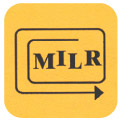Newsbites (Page 6)
Car-Free Campus
Courtesy Kathleen Ng
There are lots of reasons to leave your car at home (or get rid of it altogether!) in an urban centre like Montreal, and McGill took part recently in yet another one: International Car-Free Day. Initiated in 1998 in France, the awareness campaign is meant to get people thinking about the reasonable use of vehicles and alternatives to single-occupant cars that clog city streets around the world.
The City of Montreal participated in 2003 for the first time, and this year McGill was on board, closing off McTavish Street between 9:30 am and 3:30 pm for use as a stage to present environmental issues. Last year, Montreal experienced an immediate 40% reduction in carbon monoxide and nitrogen monoxide during Car-Free Day, and while some drivers grumbled, the event was deemed a success by 95% of respondents to a poll conducted by the city transport agency and was scheduled again for this year.
McGill Environmental Officer Kathleen Ng, BSc'99, DipMan'04, said, "The students coordinated the activities for McGill's Car-Free Day and I arranged for the permit from the city to have the street closed.There was quite a crowd at lunchtime."
Activities at McGill's Car-Free Day included lobbing tomatoes at an SUV target (above), a demonstration of McGill's solar car by team iSun, a rollerblade slalom, and bashing away at a car piñata. There were information tables for McGill environmental workgroups and also live music.
Ng points out some of McGill's own initiatives in alternative transportation. A shuttle bus equipped with bike racks has been running for several years now between the downtown and Macdonald campuses, and she says they are also hoping to convert the bus to a biodiesel fuel system in the future. Macdonald has also run a very successful bike loan program which Ng is now bringing to the downtown campus in association with the Students' Society. And the University recently participated in a transportation survey as part of the Allégo program with Montreal's Agence Métropolitaine de Transport. Results will provide an analysis of McGill's accessibility and the commuting habits of students and staff, with a view to improving transit infrastructure and encouraging viable alternatives to the one-car, one-driver problem, including promoting public transit, carpooling, walking, cycling and bike loan programs.
Never Too Old To Learn
Young people aren't the only ones embarking on a new school year this fall. McGill's Institute for Learning in Retirement (MILR) is celebrating 15 years of offering selfdirected peer learning courses. MILR's success grew out of the idea of giving the people what they want. In 1985, the Centre for Continuing Education began offering courses geared to seniors, but the Centre's administrative director, Fiona Clark, soon realized that seniors preferred to decide for themselves what they would learn. She and then-Dean of Continuing Education Pamela Stewart worked to get Senate approval for the establishment of MILR, and an enthusiastic group of volunteers stepped up to organize logistics and devise a curriculum.

Providing learners with both intellectual stimulation and fellowship, lifelong learning is a growing global phenomenon and MILR's expansion reflects that trend. Since the inaugural year of 1989, the number of study groups has grown from 30 to 114 and membership has expanded from 180 to 802. The peer learning model means that MILR study groups have moderators with some expertise in a given subject, but participants are expected to contribute to the learning process by making presentations themselves and taking an active part in discussions.
The slate of topics for this semester include "United Nations - Successes and Failures," "A History of Money" and "Victorian Hippies: Arts, Crafts and Utopianism." Whatever the topic, MILR president Nancy Grayson says, "There is a feeling that when you go to a class you will not only be learning but you will be meeting interesting people with whom you have something in common."
For more information, see www.mcgill.ca/milr/.


